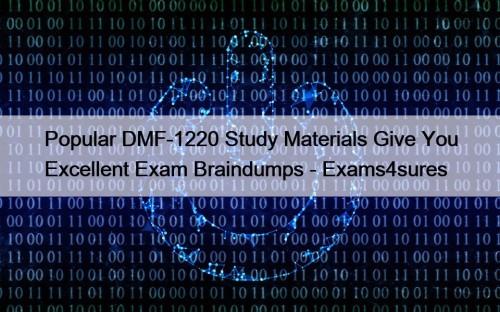Most Popular
 DEA-C02 Exam Questions Fee, DEA-C02 Reliable Exam Price
DEA-C02 Exam Questions Fee, DEA-C02 Reliable Exam Price
You can take SnowPro Advanced: Data Engineer (DEA-C02) (DEA-C02) practice ...
 Popular DMF-1220 Study Materials Give You Excellent Exam Braindumps - Exams4sures
Popular DMF-1220 Study Materials Give You Excellent Exam Braindumps - Exams4sures
2025 Latest Exams4sures DMF-1220 PDF Dumps and DMF-1220 Exam Engine ...
 Free 3V0-42.23 Vce Dumps, Reliable 3V0-42.23 Dumps
Free 3V0-42.23 Vce Dumps, Reliable 3V0-42.23 Dumps
2025 Latest Lead2PassExam 3V0-42.23 PDF Dumps and 3V0-42.23 Exam Engine ...



100% Pass 2025 Latest Oracle 1Z0-1127-25 Test Dumps Demo

We update our Oracle 1Z0-1127-25 exam dumps over time and mark the changes online. Enroll in the Oracle 1Z0-1127-25 exam dumps and start your preparation with Oracle 1Z0-1127-25 practice questions. We will provide you with the information covered in the current test and incorporate materials that originate from Oracle 1Z0-1127-25 Exam Dumps. You will get a handful of knowledge about topics that will benefit your professional career.
Oracle 1Z0-1127-25 Exam Syllabus Topics:
| Topic | Details |
|---|---|
| Topic 1 |
|
| Topic 2 |
|
| Topic 3 |
|
| Topic 4 |
|
>> 1Z0-1127-25 Test Dumps Demo <<
New 1Z0-1127-25 Test Review - Exam 1Z0-1127-25 Braindumps
The immediate downloading feature of our 1Z0-1127-25 study materials is an eminent advantage of our products. Once the pay is done, our customers will receive an e-mail from our company. There is a linkage given by our e-mail, and people can begin their study right away after they have registered in. Our 1Z0-1127-25 study materials are available for downloading without any other disturbing requirements as long as you have paid successfully, which is increasingly important to an examinee as he or she has limited time for personal study. Therefore, our 1Z0-1127-25 Study Materials are attributive to high-efficient learning.
Oracle Cloud Infrastructure 2025 Generative AI Professional Sample Questions (Q20-Q25):
NEW QUESTION # 20
What distinguishes the Cohere Embed v3 model from its predecessor in the OCI Generative AI service?
- A. Emphasis on syntactic clustering of word embeddings
- B. Support for tokenizing longer sentences
- C. Improved retrievals for Retrieval Augmented Generation (RAG) systems
- D. Capacity to translate text in over 100 languages
Answer: C
Explanation:
Comprehensive and Detailed In-Depth Explanation=
Cohere Embed v3, as an advanced embedding model, is designed with improved performance for retrieval tasks, enhancing RAG systems by generating more accurate, contextually rich embeddings. This makes Option B correct. Option A (tokenization) isn't a primary focus-embedding quality is. Option C (syntactic clustering) is too narrow-semantics drives improvement. Option D (translation) isn't an embedding model's role. v3 boosts RAG effectiveness.
OCI 2025 Generative AI documentation likely highlights Embed v3 under supported models or RAG enhancements.
NEW QUESTION # 21
When should you use the T-Few fine-tuning method for training a model?
- A. For datasets with hundreds of thousands to millions of samples
- B. For datasets with a few thousand samples or less
- C. For complicated semantic understanding improvement
- D. For models that require their own hosting dedicated AI cluster
Answer: B
Explanation:
Comprehensive and Detailed In-Depth Explanation=
T-Few is ideal for smaller datasets (e.g., a few thousand samples) where full fine-tuning risks overfitting and is computationally wasteful-Option C is correct. Option A (semantic understanding) is too vague-dataset size matters more. Option B (dedicated cluster) isn't a condition for T-Few. Option D (large datasets) favors Vanilla fine-tuning. T-Few excels in low-data scenarios.
OCI 2025 Generative AI documentation likely specifies T-Few use cases under fine-tuning guidelines.
NEW QUESTION # 22
Which statement is true about string prompt templates and their capability regarding variables?
- A. They require a minimum of two variables to function properly.
- B. They support any number of variables, including the possibility of having none.
- C. They can only support a single variable at a time.
- D. They are unable to use any variables.
Answer: B
Explanation:
Comprehensive and Detailed In-Depth Explanation=
String prompt templates (e.g., in LangChain) are flexible frameworks that can include zero, one, or multiple variables (placeholders) to customize prompts dynamically. They can be static (no variables) or complex (many variables), making Option C correct. Option A is too restrictive. Option B is false-variables are a core feature. Option D is incorrect, as no minimum is required. This flexibility aids prompt engineering.
OCI 2025 Generative AI documentation likely covers prompt templates under LangChain or prompt design.
NEW QUESTION # 23
How are fine-tuned customer models stored to enable strong data privacy and security in the OCI Generative AI service?
- A. Shared among multiple customers for efficiency
- B. Stored in Key Management service
- C. Stored in Object Storage encrypted by default
- D. Stored in an unencrypted form in Object Storage
Answer: C
Explanation:
Comprehensive and Detailed In-Depth Explanation=
In OCI, fine-tuned models are stored in Object Storage, encrypted by default, ensuring privacy and security per cloud best practices-Option B is correct. Option A (shared) violates privacy. Option C (unencrypted) contradicts security standards. Option D (Key Management) stores keys, not models. Encryption protects customer data.
OCI 2025 Generative AI documentation likely details storage security under fine-tuning workflows.
NEW QUESTION # 24
What is the role of temperature in the decoding process of a Large Language Model (LLM)?
- A. To decide to which part of speech the next word should belong
- B. To determine the number of words to generate in a single decoding step
- C. To increase the accuracy of the most likely word in the vocabulary
- D. To adjust the sharpness of probability distribution over vocabulary when selecting the next word
Answer: D
Explanation:
Comprehensive and Detailed In-Depth Explanation=
Temperature is a hyperparameter in the decoding process of LLMs that controls the randomness of word selection by modifying the probability distribution over the vocabulary. A lower temperature (e.g., 0.1) sharpens the distribution, making the model more likely to select the highest-probability words, resulting in more deterministic and focused outputs. A higher temperature (e.g., 2.0) flattens the distribution, increasing the likelihood of selecting less probable words, thus introducing more randomness and creativity. Option D accurately describes this role. Option A is incorrect because temperature doesn't directly increase accuracy but influences output diversity. Option B is unrelated, as temperature doesn't dictate the number of words generated. Option C is also incorrect, as part-of-speech decisions are not directly tied to temperature but to the model's learned patterns.
General LLM decoding principles, likely covered in OCI 2025 Generative AI documentation under decoding parameters like temperature.
NEW QUESTION # 25
......
We will refund your money if you fail to pass the exam if you buy 1Z0-1127-25 exam dumps from us, and no other questions will be asked. We are famous for high pass rate, with the pass rate is 98.75%, we can ensure you that you pass the exam and get the corresponding certificate successfully. In addition, 1Z0-1127-25 Exam Dumps of us will offer you free update for 365 days, and our system will send the latest version of 1Z0-1127-25 exam braindunps to your email automatically. We also have online service stuff, and if you have any questions just contact us.
New 1Z0-1127-25 Test Review: https://www.vcetorrent.com/1Z0-1127-25-valid-vce-torrent.html
- Oracle 1Z0-1127-25 PDF Questions-Turn Your Exam Fear Into Confidence ⚖ Download ➥ 1Z0-1127-25 🡄 for free by simply entering ▶ www.real4dumps.com ◀ website 🗾New 1Z0-1127-25 Test Dumps
- 1Z0-1127-25 Latest Exam Tips 🚅 1Z0-1127-25 Dumps 🥱 Exam 1Z0-1127-25 Tips 🐉 Search for ➡ 1Z0-1127-25 ️⬅️ and obtain a free download on ⮆ www.pdfvce.com ⮄ ✨1Z0-1127-25 Exam Vce
- New 1Z0-1127-25 Exam Practice 🌰 Well 1Z0-1127-25 Prep 🐋 1Z0-1127-25 PDF ☝ Enter ➥ www.pdfdumps.com 🡄 and search for ( 1Z0-1127-25 ) to download for free 😁Well 1Z0-1127-25 Prep
- TOP 1Z0-1127-25 Test Dumps Demo - Oracle Oracle Cloud Infrastructure 2025 Generative AI Professional - Latest New 1Z0-1127-25 Test Review 🧢 Open website ➤ www.pdfvce.com ⮘ and search for ⮆ 1Z0-1127-25 ⮄ for free download 🌂Well 1Z0-1127-25 Prep
- New 1Z0-1127-25 Test Dumps 📺 Latest 1Z0-1127-25 Dumps 🤸 1Z0-1127-25 Valid Torrent ⛰ Search for ➤ 1Z0-1127-25 ⮘ and easily obtain a free download on ⏩ www.exams4collection.com ⏪ 👓Well 1Z0-1127-25 Prep
- New 1Z0-1127-25 Exam Practice ⬅️ New 1Z0-1127-25 Exam Practice 🍿 1Z0-1127-25 Dumps 🥀 Simply search for ➡ 1Z0-1127-25 ️⬅️ for free download on ☀ www.pdfvce.com ️☀️ 🦽Valid 1Z0-1127-25 Test Pattern
- Well 1Z0-1127-25 Prep ⛴ 1Z0-1127-25 Valid Torrent 🍤 Reliable 1Z0-1127-25 Real Exam 🤴 Enter ➥ www.examcollectionpass.com 🡄 and search for ( 1Z0-1127-25 ) to download for free 🏔1Z0-1127-25 Dumps
- 1Z0-1127-25 Valid Torrent 🏢 New 1Z0-1127-25 Exam Pattern 🏈 1Z0-1127-25 Test Valid 🔦 Easily obtain ( 1Z0-1127-25 ) for free download through 【 www.pdfvce.com 】 💹New 1Z0-1127-25 Exam Practice
- 1Z0-1127-25 Valid Torrent 👏 1Z0-1127-25 Test Valid 😜 Valid 1Z0-1127-25 Test Voucher ☂ Open ⇛ www.real4dumps.com ⇚ enter 《 1Z0-1127-25 》 and obtain a free download 🎨New 1Z0-1127-25 Test Dumps
- Reliable 1Z0-1127-25 Real Exam ⏏ New 1Z0-1127-25 Exam Topics ☂ 1Z0-1127-25 Reliable Exam Syllabus 📨 The page for free download of ( 1Z0-1127-25 ) on { www.pdfvce.com } will open immediately 🕥1Z0-1127-25 Valid Torrent
- TOP 1Z0-1127-25 Test Dumps Demo - Oracle Oracle Cloud Infrastructure 2025 Generative AI Professional - Latest New 1Z0-1127-25 Test Review 🐮 Search for ➥ 1Z0-1127-25 🡄 on 「 www.passtestking.com 」 immediately to obtain a free download 🧅Exam 1Z0-1127-25 Tips
- 1Z0-1127-25 Exam Questions
- thewealthprotocol.io saudeduhub.com reyini.com edu.chaulerbazar.com lms.statmodeller.com mapadvantageact.com thecyberfy.com www.waeionline.com igrowup.click helpingmummiesanddaddiesagencytt.com
Tags: 1Z0-1127-25 Test Dumps Demo, New 1Z0-1127-25 Test Review, Exam 1Z0-1127-25 Braindumps, New 1Z0-1127-25 Exam Testking, Dump 1Z0-1127-25 File